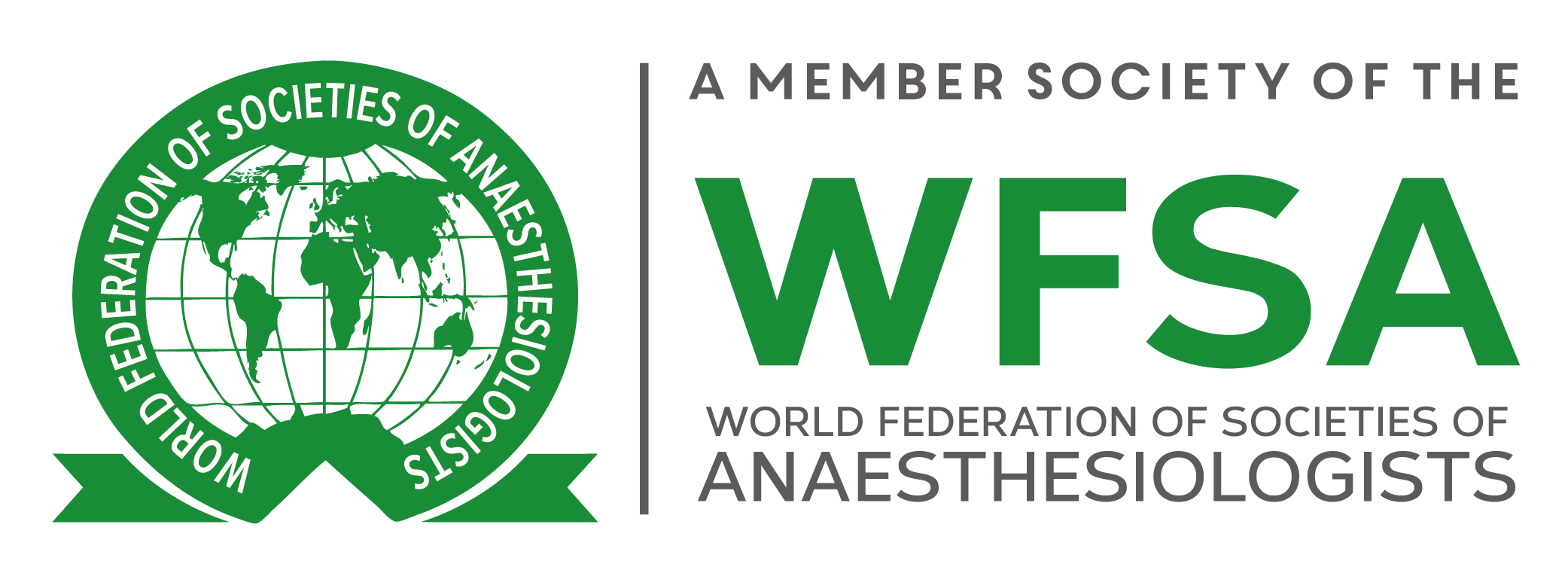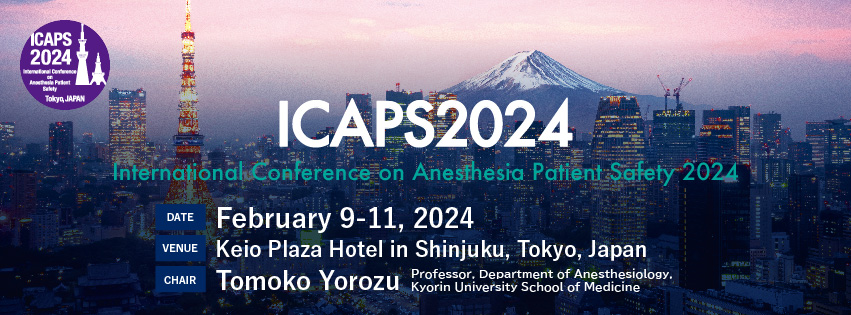Outline of Japanese Society of Anesthesiologists
The practice of anesthesiology in Japan as a specialty has grown rapidly since Japanese surgeons visited the United States immediately after World War II and saw how successful surgery could be with the close cooperation of an independent department of anesthesiology. They were deeply impressed and shocked by the advances in surgery and anesthesia in the United States compared to Japan.
On October 22, 1954, Japan Society of Anesthesiology (JSA) was established under the leadership of the Department of Anesthesiology of the University of Tokyo School of Medicine. The aim of the association was to contribute to the academic and cultural development of Japan by facilitating the science of anesthesiology through continuing education and studies related to anesthesiology, and by promoting cooperation with related associations here and abroad.
Anesthesiology can be described as the biological management of a patient’s respiration, circulation, body fluids, metabolism and pain to facilitate survival from invasive surgery. Thus it is theoretically impractical to separate progress in surgery from that of anesthesiology.
But in Japan, surgery progressed faster than anesthesiology until around 1950. Intraoperative patient care was poor, too often resulting in the failure of patients to survive surgery. This is no longer the case due to improvements in patient care. Progress has been made through studies in anesthesia and wider areas of patient care, such as the effect of anesthesia on respiration, circulation, body fluids and metabolism.
The Japanese government, recognizing the importance of anesthesiology in patient comfort and survival, specified the following requirements to practice anesthesia in Japan in an official notice from the Medical Affairs Bureau of the Ministry of Health and Welfare in March 1960 (Qualifications for the Specialty of Anesthesiology and its Certification):
1.Training for more than 2 years under qualified anesthesia instructors, or
2.Engagement in more than 300 cases of general anesthesia over 2 years, and the approval of the head of the facility, or
3.Equivalent training abroad.
The notice prescribes that only physicians approved by the Evaluation Committee under the Ministry of Health and Welfare be allowed to practice anesthesia and identify themselves as anesthesiologists, due to the highly specialized and unique training required. There is a striking difference between the existence of requirements for anesthesiology and the lack of such requirements for other medical specialties.
The JSA holds academic meetings and issues publications. Publications include the Annual Report of the Japanese Society of Anesthesiologists, Masui (a monthly semi-official Japanese journal of anesthesia with English abstracts), and the Journal of Anesthesia which is the official English periodical of JSA to present research achievements in Japan and abroad. Both journals are indexed in Medline.
Many JSA members are also registered with international societies and participate in meetings of the World Congress of Anaesthesiologists. JSA has sent many speakers to Asian/Australasian and Japanese/Korean joint meetings of the Society of Anesthesiologists. JSA is also planning to actively respond to requests for sending anesthesiologists to Asian/Oceania regions through such organizations as the Japan International Cooperation Agency.
JSA has also been making an effort to provide educational activities for the general public at academic meetings by holding introductory lectures on the safety of surgery and the important role anesthesia plays during surgery, treatment of chronic pain in cancer patients, etc.
In 1997 the JSA began granting the JSA Award, a social award not limited to JSA members, to people who have contributed not only to anesthesiology but to the general good of society.
The JSA, as a group specializing in anesthesiology, is affiliated with such authoritative organizations as the Science Council of Japan and the Japanese Association of Medical Sciences and cooperates with various projects related to medical care. After obtaining legal status as a corporate aggregate on June 20, 2001, JSA increased its on-going activities. A specialty certification system was initiated as were academic meetings and training held by regional chapters. We are constantly making efforts to fulfill our obligations and responsibilities through expansion of our exchange program, international activities, and academic improvement through work with related academic associations and public activities.






